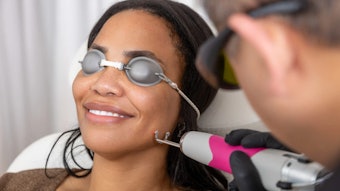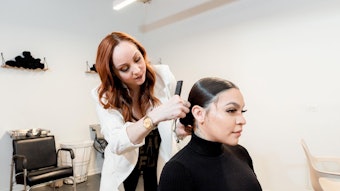
You don’t need something “fishy” in your tax return to be selected for an audit. The IRS randomly selects any return for an audit. If you are one of the lucky ones, you must show proof of every income dollar and deduction. It's best to have some kind of system in place to keep track of your income/expenses—a ledger, a folder, an envelope, apps on your cell, etc., where you keep running totals. Keeping good records throughout the year simplifies your tax preparation, but what should you track? What’s deductible?
Let’s suppose you get a W2, and the salon is your sole source of income. You can probably avail yourself of one of the many online software programs to file your taxes. A Google search will bring up multiple options. The software program will walk you through the process—and you could save on preparation fees.
If you lease a chair, the IRS classifies you as an independent contractor. Why is this important? You are a business owner subject to different tax rules than employees who receive a W-2.
If you freelance as an educator or platform artist, you will receive a form 1099 from your employer for any money you received above $600 that you must report on your tax return. This is where keeping track of travel and educational deductions makes a big difference.
No matter what you read or hear, including my information below, always check with a tax professional to determine which information, tax break or deduction could apply specifically to you.
Let’s get into it.
Tips and FAQs for Filing Taxes
- Work with a professional. Hire a tax professional. Don’t have your significant other or favorite aunt do your taxes. Set yourself up as a professional for future growth and success. A tax professional will be up to date on changes in the tax law, rules, keeping a record of your taxes and being there if you are audited.
- Why can’t I follow the same rules as those employed in my salon?
As an independent, you did not have taxes withheld and reported to IRS. You will owe self-employment tax, which is typically paid when an employer withholds wages. As a renter, you pay both the employer and employee part of Social Security and Medicare. The income you declare and the tax you pay are what determines your retirement social security dollars. - Are you sure you are an independent contractor?
The IRS has specific guidelines to determine if you are an independent contractor. The IRS has been cracking down on employers who do not withhold taxes and treat independents as employees. Check out the twenty questions to determine if you really are a self-employed independent contractor and better understand your rights as an independent. - Can you get away without paying taxes if you know your expenses were higher than your income?
Not if you earned more than $400. Taxes are owed if your net earnings from any self-employment source were over $400 for the year. - What is the standard deduction, and how does it apply to a lease renter?
Yes, it applies. The standard deduction is an amount you can subtract from your adjusted gross income and reduce your tax liability. You have a choice of either claiming the standard deduction or itemizing your deductions/expenses. - How do I know if I should take the standard deduction or itemize my deductions?
If your total expenses are greater than the standard deduction for the year, consider itemizing your expenses instead of taking the standard deduction.
What can you deduct? What should you track?
Business expenses must be both ordinary (commonly accepted in the salon industry) and necessary (helpful and appropriate for your business). Here are a few examples:- Mileage: Nope. Your commute is not deductible; but, if you do home visits or drive to a class, yes.
- Home office: Iffy. Since you work in a salon, it may raise a red flag, It needs to be a dedicated home workspace used solely and regularly to manage or work your hair business. I stay away from this one.
- Professional development: Yes, classes, seminar registration fees, and lodging are 100% deductible, and your meals are 50% deductible. The outfit you bought to wear at the hair show—not.
- Tools and supplies that you use for your salon business are usually 100% deductible.
- Cell phone: Careful with this one. If you use a cell phone only for business, you can fully deduct the monthly expenses, including the phone purchase. If you also use your cell phone for personal reasons, you can only deduct the portion of the expense that rightfully belongs to your business. I deduct a straight 30% from my cell phone bill instead of keeping track of calls.
- Licenses: Renewal of your cosmetology license plus any educational requirements are fully deductible. City business licenses and association fees, chamber of commerce fees, better business memberships, etc. are also fully deductible.
- Insurance: Business and liability insurance is totally deductible. Your health insurance is 100% deductible, but if you receive a government subsidy, you can only write off the amount you pay each month—check with your tax preparer.
- Printing and copying business cards, flyers, ads, graphic design, etc. are valid deductions.
- Advertising: Any form of publicity that you pay for is deductible, including Facebook and Instagram ads.
- Giveaways: If you give away products, brushes, deals, etc., you may deduct these as business expenses. Be sure to have documentation on these giveaways.
- Personal items and services like clothing, jewelry, skincare, cosmetics or hair cut services, even though you may feel they are essential to your branding, are not deductible.
If in your heart your wish is to become a successful cosmetologist and make it your life’s work, your knowledge of where your money goes and how to maximize your allowable tax deductions is the building block of your success. Review your methods frequently, and make sure they apply to your ever-changing salon situations.
About the Author:
Carlos Valenzuela is a hairdresser, writer, success coach, ex-salon & beauty school owner. He is also the author of The Thrifty Cosmetologist, a simple video-based approach to money smarts for salon pros.











